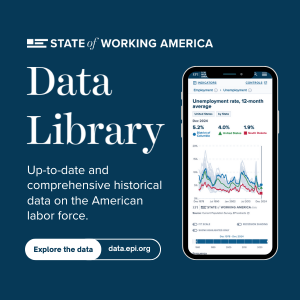Taxing health benefits no silver bullet: Famous economists agreeing with us, Part 2
Prominent economists from the Urban Institute, John Holahan, Linda J. Blumberg, and others, published an insightful study this week on policies that might significantly contain the growth of health system spending. This post is going to focus on a policy that would not – the excise tax on high-cost employer-sponsored insurance plans.
There are two points they make abundantly clear. First, yes, the excise tax on high cost health plans will generate revenue. Second, it’s not going to do much to contain long term health cost growth.
The first point is indisputable. The second runs contrary of conventional wisdom about how effective taxing benefits will be in driving consumers to purchase less expensive plans. All else equal (firm size, region, age of workers at firm, etc.), less expensive plans require consumers to pay more when they seek care – higher coinsurance rates, higher deductibles, or the like. When consumers have to pay more, they will consume less. Voila! Rising health cost growth halted and we are saved.
Holahan and co-authors say it’s not so simple because spending on health care is not evenly spread across the population. And, I quote:
“Those least likely to be involved in the health care system—those with the lowest health care needs—will be most likely to be affected by increased cost-sharing. Given the strongly skewed distribution of health care spending, with 65 percent of total spending accounted for by only 10 percent of the population, significant health savings will not be achieved unless the highest spenders are affected as well.”
It sounds so convincing and reasonable to me, perhaps because I tried to make similar arguments during the health reform debate. It’s not that I had unusual foresight, but it’s just common sense when you look at the data. Back in March 2009 I argued:
“But the potential gains in cost containment from taxing health benefits are wildly overblown. We know that 80% of health costs are borne by 20% of the population. Serious cost containment measures should deal with bringing down the costs of the most expensive cases in our system (e.g., managing chronic diseases) rather than arguing over the much smaller amounts spent by the rest of the population. Policies fixated on reining in the first few hundred dollars of health spending do not effectively or efficiently deal with what is driving the high costs of the U.S. health system.”
However, as the health reform debate progressed, the policy virtues of taxing insurance benefits became exaggerated. And another set of prominent economists even identified the tax on expensive health insurance plans as one of just four critical elements of reform.
To sum up the Urban study’s main points that are consistent with those I raised two years ago:
1. Taxing benefits will have little impact on reining in health care spending because the distribution of health spending is skewed with few spending the vast majority of health dollars.
2. Increased cost sharing could lead to increased costs if patients respond to increased cost-sharing by substituting other services or delaying care until more expensive medical interventions are necessary.
3. Increased cost sharing could have significant negative health outcomes for people who have chronic conditions or are poor.
I might (and did in 2009) make another point: “high-cost” plans aren’t the same thing as “Cadillac” plans. The excise tax was often sold as taxing only those workers lucky enough to have lavish health coverage that demand minimal cost-sharing relative to normal plans (hence they were “Cadillac” plans). But in the market for health insurance, plans are expensive for a number of reasons (firm size, age of workforce, location, etc.) besides how much cost-insulation they provide. Further, as the excise tax threshold rises slower than health care inflation, it can no longer legitimately be called a tax on high-cost plans, unless the definition of what are high-cost plans is altered to mean all plans.
Why is this still a live question? Various proposals to even further erode the tax-preference for health insurance continue to pop up in the debate over budget deficits. So, it should be pointed out again that the excise tax (or taxing benefits through a tax exclusion cap or the like) is simply “not well targeted” (pg. 10) and does not create the right incentives for the creation of the most efficient insurance policy; in fact, it is a blunt instrument that creates no incentives except to purchase cheaper policies.
In the end, health care cost control should not come about by forcing consumers to figure out what they’re going to sacrifice – our health system just does not provide them the information they need to do this. The rest of the Holahan et al paper describes some better ways to contain costs.
Enjoyed this post?
Sign up for EPI's newsletter so you never miss our research and insights on ways to make the economy work better for everyone.
